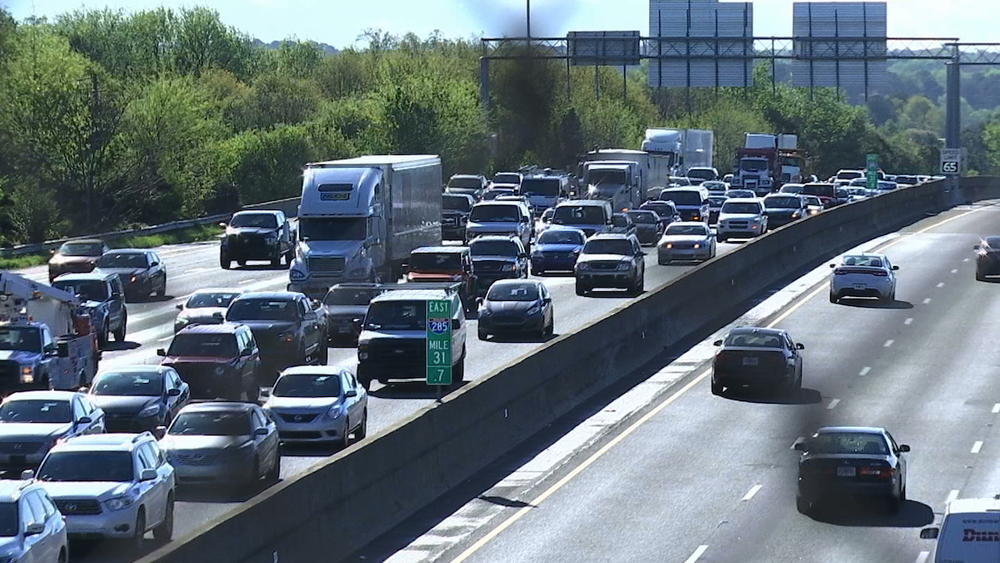Section Branding
Header Content
Atlanta After Major Bridge Collapse: Jump In Mass Transit
Primary Content
Atlanta area commuters crowded aboard mass transit trains and fewer cars hit the road Monday as public schools went on spring break, easing fears of fierce gridlock after last week's fiery collapse of a key interstate bridge.
Morning rush hour traffic in the Southeast's largest city appeared lighter than usual as the first full workweek opened since Thursday's inferno cut off the key highway link between downtown Atlanta and its northern suburbs.
Friday saw traffic snarls and long delays as drivers sought to work their way onto side streets around the bridge collapse.
The Metropolitan Atlanta Rapid Transit Authority reported a big rush hour jump in passengers on the northern rail lines Monday morning, up 50 to 73 percent, as many commuters sought to avoid highways altogether.
Friday's commute, a day after the fire, saw major delays as commuters swamped mass tranist and other roads to bypass the wrecked bridge.
Meanwhile, the transit authority said it has experience an overall increase in ridership of 20 percent since the bridge collapse, adding services since.
Motorist Randy Kessler said he left his home north of the city slightly earlier than usual around 7 a.m. to drive downtown. He said he didn't experience any major traffic heading south, but saw more traffic going north.
Overall, fewer cars were on the road than on a typical Monday because all metro Atlanta public schools are out for spring break this week.
"This is going to help in the long run," said Kessler, a divorce lawyer. "It reminds me of the (1996) Olympics when people were terrified about driving downtown, but it was lightest traffic ever. It made people carpool more. I think Atlanta needed a little kick in the butt. We needed something to change our habits to make us rethink our daily commute."
Crews are working around the clock to remove scorched debris from the collapsed bridge. A portion of Interstate 85 remains closed as drivers are being redirected to alternate routes to bypass the wrecked bridge.
The closed section of I-85 is a key link to some of the city's biggest suburbs. It carries about 400,000 vehicles a day in a city where there are surprisingly few alternative routes for its size.
Officials pledged after the collapse of the 350-foot section of Interstate 85 that a replacement bridge would be built as soon as possible, but that could take months.
Authorities said the fire was started by a man who had talked about smoking crack prior to the fire that broke out under the bridge in an area north of downtown Atlanta where the state of Georgia stores noncombustible construction materials.
The blaze rapidly grew with smoke billowing high above the city's skyline. It didn't take long before chunks of concrete weakened by the high heat began flying off the bridge, leaving firefighters scrambling away for safety. No one was injured.
Basil Eleby was charged with first-degree arson and first-degree property damage. He remains in jail on a $200,000 bond. Two other people with him were charged with criminal trespass, authorities said.
Elsewhere Monday, an early morning crash involving at least four vehicles on Interstate 20, another major route carrying commuters into downtown Atlanta, killed one person and temporarily shut down lanes of that highway.

